The 10 Best Beach Bars in the UK
If there’s one thing we love doing in Britain, it’s visiting a beach bar! We love flocking to the...
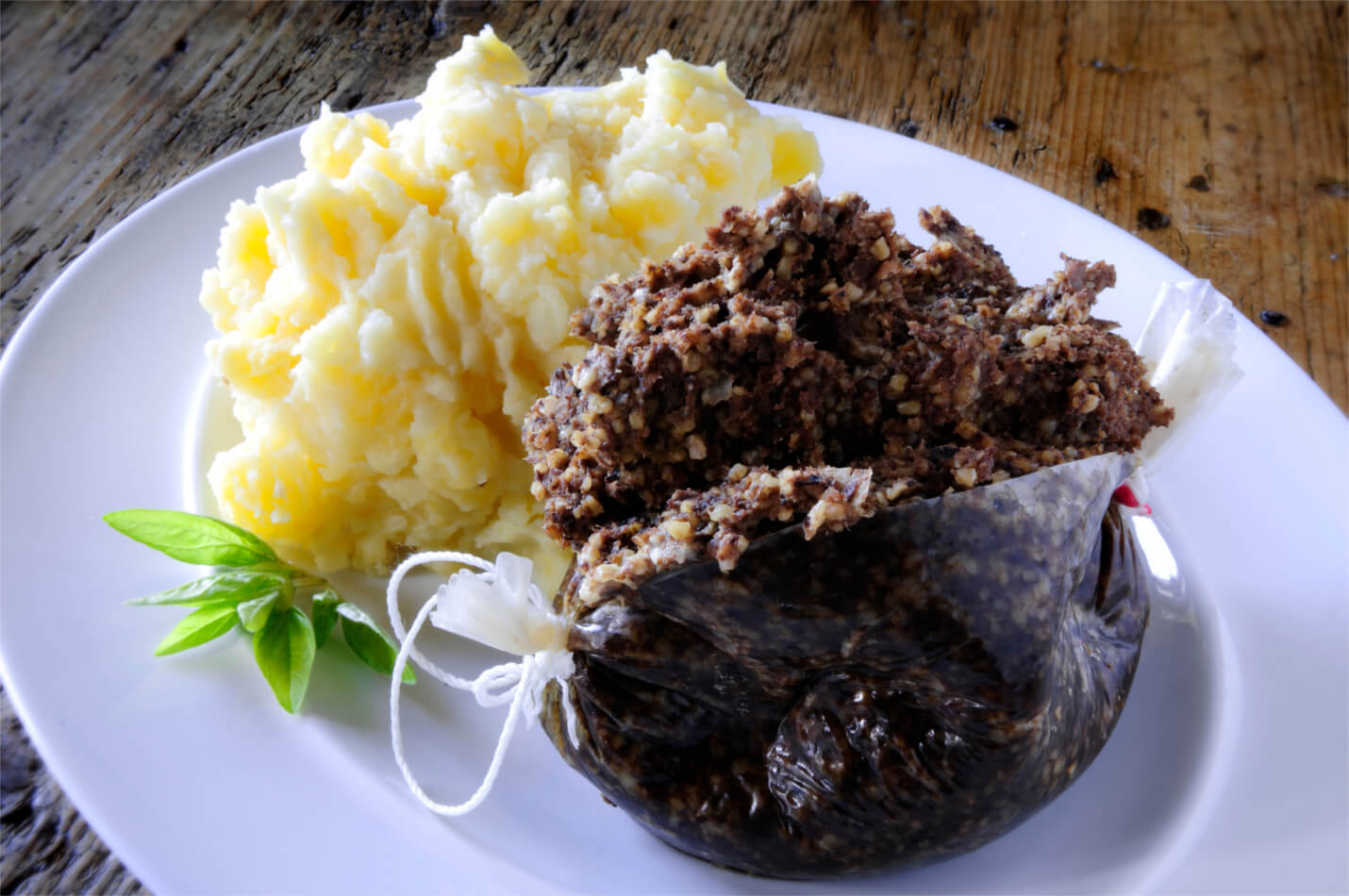
Among its many notable traits like tartan, kilts and bagpipes, Scotland is also renowned for its food!
From hearty dishes filled with meat and vegetables, to sweet sugary treats and deep-fried delicacies, Scotland has it all with thousands of restaurants proudly serving these traditional Scottish foods.
We have created a fantastic list of Scottish food specialties associated with this vast and beautiful country, perfect for you to try when holidaying in one of our self-catered cottages in Scotland.
Read on to discover our selection of 9 delicious Scottish foods you have to try when you’re in Scotland…
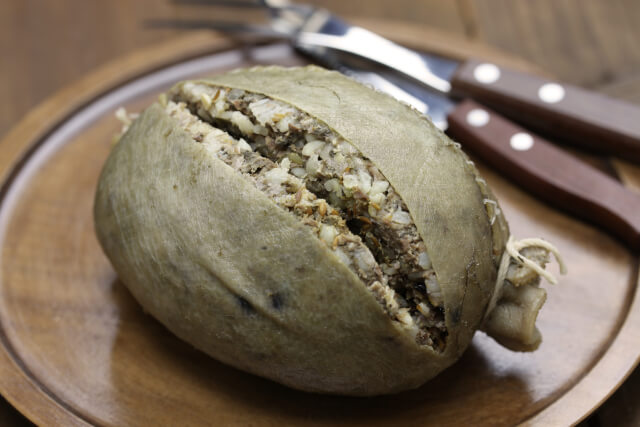
What is it: Despite its strange and often off-putting features, Haggis is one of, if not the most well-known Scottish delicacy, but not many non-Scots are familiar with what it entails. Haggis is traditionally made by mincing sheep’s offal (heart, liver, and lungs) with oatmeal, onions, suet, seasoning and spices, before stuffing the mix into the sheep’s stomach to cook and make a crumbly sausage with a coarse, oaty texture.
Where to find it: To sample this famous Scottish dish, head to Whiski Bar, which has been serving Scottish cuisine and whiskey for years, found near the Royal Mile in Scotland’s beautiful capital, Edinburgh.
Make it yourself: Have a go at making it yourself with this Great British Chefs recipe for Traditional haggis, or for a more modern take use this Good Food recipe for Vegan haggis.
What is it: Originally Scottish shortbread was created from the leftovers of bread dough, hence the ‘bread’ in the name. Nowadays it’s made with flour, butter, and sugar and comes in three styles: a large circle cut into slices called petticoat tails, shortbread fingers and individual circular shortbread rounds. It is a staple Scottish food and delicious with a cup of tea and you need to try it if you haven’t done so before!
Where to find it: Sample some scrumptious shortbread at Dean’s Café and Bistro, found in the heart of Aberdeenshire, it is a family run business with a passion for melt-in-the-mouth deliciousness and was Scotland’s first visitor attraction dedicated to shortbread.
Make it yourself: Good To Know have a great recipe for some Scottish shortbread petticoat tails, perfect to give as a Christmas gift or just simply enjoy at home with a cup of tea.
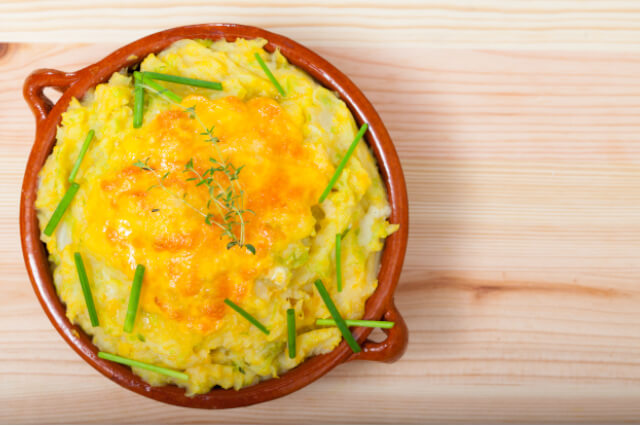
What is it: The Irish have colcannon, the English have bubble and squeak, and Scotland have Rumbedethumps. This iconic Scottish food is a concoction of leftovers from a roast dinner or similar meal, using potato, cabbage and onion as the main ingredients. Able to be served on its own or alongside a main, this Scottish meal makes for a hearty dish.
Where to find it: Rumbledethumps Restaurant at The Dairsie Inn, in north-east Fife, is a family-run restaurant offering good home-cooked food, so why not explore the area and afterwards tuck into this Scottish cuisine.
Make it yourself: BBC Food offer a simple and easy to follow recipe so you can bring this handy recipe home with you and never waste leftovers again!
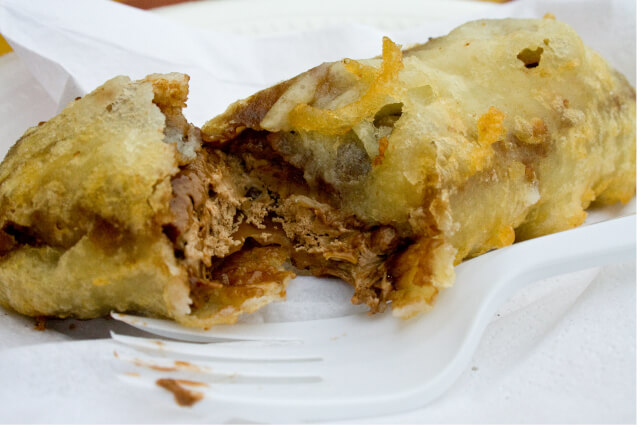
What is it: It would be reasonable to consider the deep-fried or battered Mars Bar to be Scotland’s unofficial national dish, all because a fish and chip shop in Stonehaven decided to make them in 1995. It is exactly what it says on the tin; a Mars Bar, or sometimes a Snickers, coated in batter and thrown in hot oil to create a crispy on the outside, soft in the middle, chocolately sugary treat.
Where to find it: Almost every fish and chip shop in Scotland will have a deep-friend Mars Bar on the menu, but why not head to the source and go to Stonehaven’s Carron Fish Bar where the deep-fried Mars Bar was born.
Make it yourself: This Food recipe gives you a fantastic guide of how to create this moreish masterpiece at home.
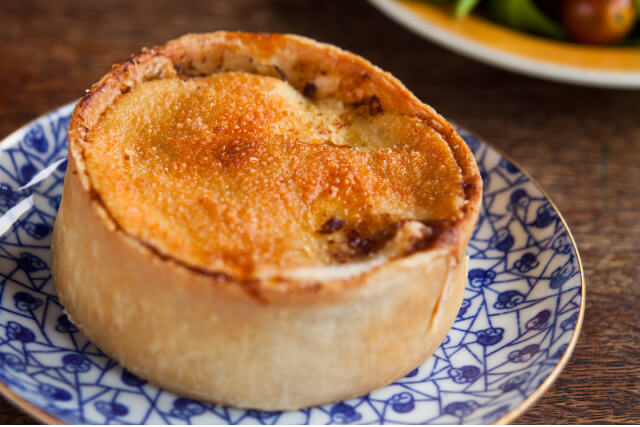
What is it: Enjoying a long history of being a traditional Scottish food, the Scotch pie is a must-have when visiting Scotland. Historically offering a convenient and sustaining snack or meal for working people, the pie is filled with mutton and seasoning, encased in a hot water crust pastry. The space or dip at the top created by the raised crust can be filled with gravy, beans or mashed potato.
Where to find it: Well known among many Scots, especially Glaswegian’s, is the Star Bar, an old-school pub serving Glasgow’s cheapest 3-course lunch for just £3! Choose the Scotch pie for your main alongside chips, peas and gravy for a slap-up meal.
Make it yourself: Try out this recipe from the one and only Paul Hollywood with BBC Food to bring a bit of Scotland home with you.
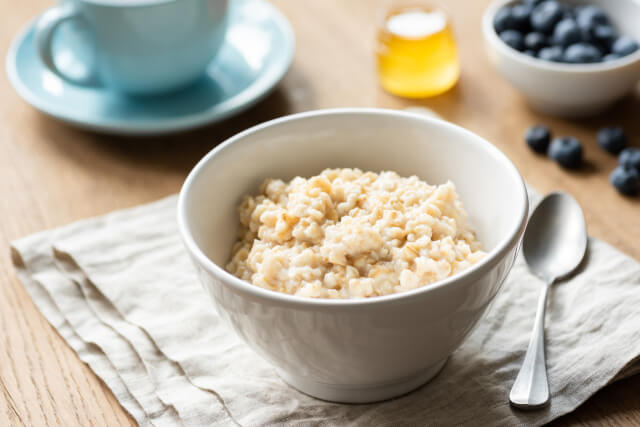
What is it: With oats being one of the few grains that grow well in the harsh Scottish climate, the Scots have enjoyed porridge for centuries. Oats are slow-release carbohydrates so they are a great choice for breakfast, ensuring you feel fuller for longer. A traditional Scottish porridge is made with oats, water, and salt, and was stirred with a wooden rod called a ‘spurtle’ in a clockwise direction with your right hand, otherwise the Devil would come for you, or so superstition said!
Where to find it: For a more modern take on this Scottish breakfast, head to Edinburgh Larder in Edinburgh, an eatery dedicated to oats and grains, serving them from morning up until late afternoon with a variety of flavours and styles.
Make it yourself: This traditional Scottish porridge recipe from Scottish-at-heart means you can see if you would survive breakfast in Scotland centuries ago, or if you really need that milk and honey accompaniment after all!
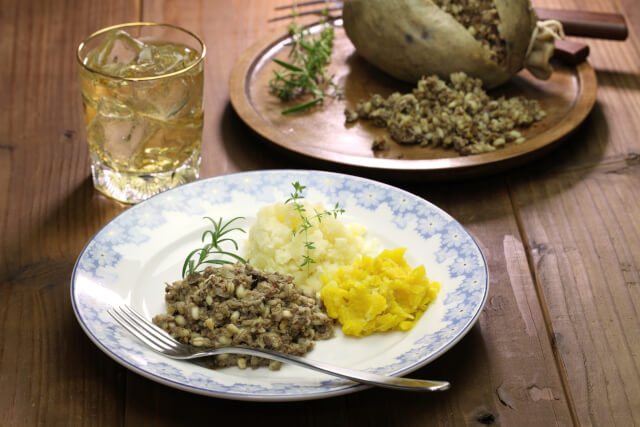
What is it: Traditionally served alongside haggis, neeps and tatties are a staple feature of many Scottish dishes. ‘Neeps’ are turnips and ‘tatties’ are, you guessed it, potatoes! They are a fabulous and filling side to meaty mains, perfect for warming you up when dealing with the Scottish weather.
Where to find it: You can find neeps and tatties all over Scotland, but when you’re in Edinburgh walking down the Royal Mile in search of a good lunch, head to World’s End, and get yourself some haggis, neeps and tatties, with a veggie option available there too!
Make it yourself: Good Food offer an easy recipe to follow to recreate this Scottish classic.
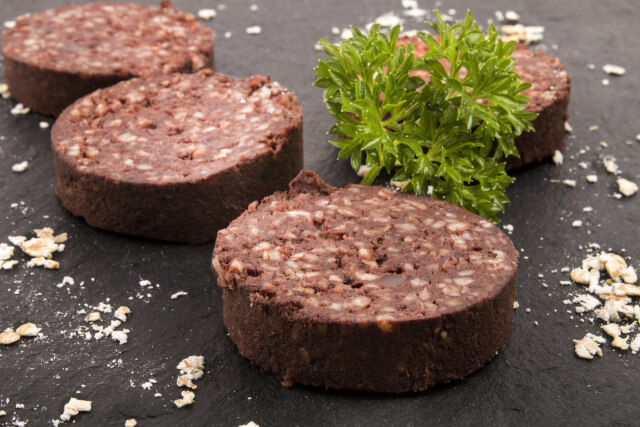
What is it: With some dispute between the Scots and the English about the origins of black pudding, in this instance we’ll agree that Scotland takes the cake, or the pudding! The Stornaway black pudding is made in the Western Isles of Scotland with its history dating back hundreds of years when crofters (farmers) would ensure they had enough meat for the winter and make use of the whole animal, and so black pudding was born. Very similar to haggis, it is made from pig’s blood, suet, onion, oatmeal and spices.
Where to find it: You’ll find black pudding on many breakfast menus all around Scotland, but if you’re in the Glasgow area head to Cafezique, a lovely corner offering a ‘big breakfast’ including black pudding, or ‘eggs black’, a poached egg on a muffin topped with black pudding.
Make it yourself: If you haven’t been put off by the blood and want to recreate this at home, use this River Cottage recipe and enjoy some homemade black pudding.
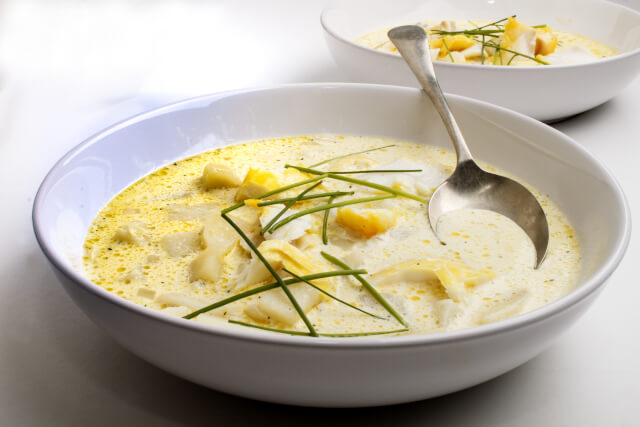
What is it: Originating from the small town of Cullen in north-east Scotland, from whence it got its name, is this tasty dish made with smoked haddock, potatoes and onions, creating a thick Scottish broth.
Where to find it: Often served as a starter at formal Scottish dinners, you will see Cullen skink on lots of menus throughout Scotland. Try this fish dish at The Scottish Café and Restaurant found in the Scottish National Gallery in Edinburgh.
Make it yourself: The Guardian offers a ‘Perfect Cullen skink’ recipe for you to try for yourself.
Sample all of this Scottish cuisine when staying in one of our cottages in Scotland in between enjoying the many things to see and do in Scotland!
Image credits: Deep-fried Mars Bar by Christian Cable – CC BY 2.0
Are you on the phone to our call centre? Your Customer ID is:
Get involved in the Discussion